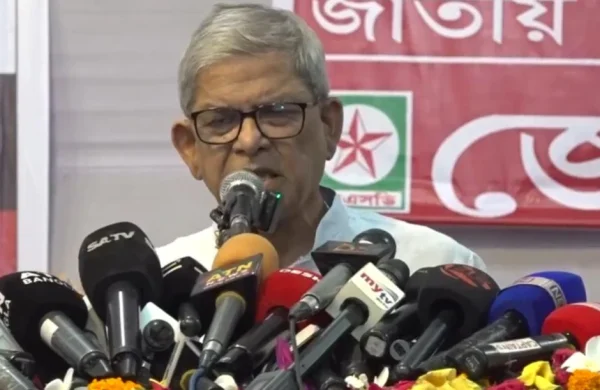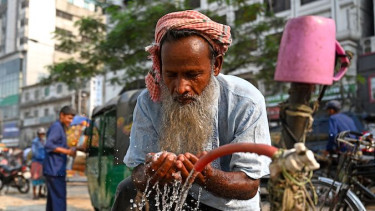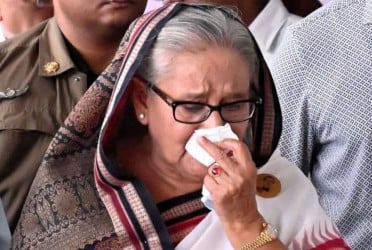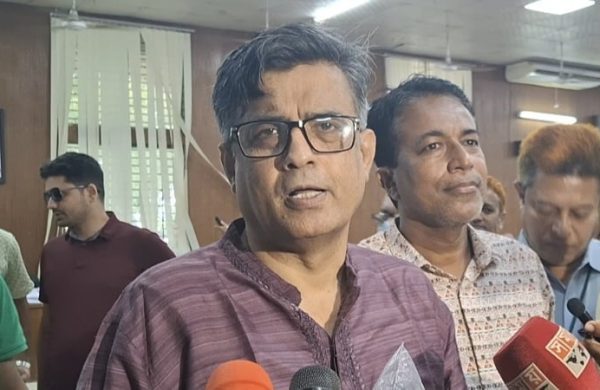Garment sector in crisis
- Update Time : Wednesday, October 1, 2025
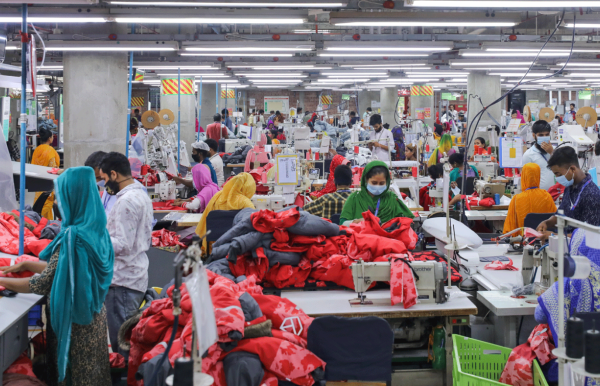
TDS Desk:
Bangladesh’s ready-made garment (RMG) sector—the country’s largest source of foreign currency from exports—is facing a wave of factory closures. Political turmoil, heavy debt burdens, labour unrest, and a host of other challenges have thrown the industry into disarray, leaving vast numbers of workers out of jobs.
It is not just the garment sector; factories in other industries are also closing down. The wave of closures and resulting job losses has heightened concerns about the future of the country’s economy. Although a few encouraging signs of new factories opening have been observed at the same time, industry insiders believe these are not enough to offset the ongoing crisis.
According to them, Bangladesh must ensure political stability, safeguard workers’ interests, and restructure strategies to remain competitive in the global market. Otherwise, the country’s largest export sector could face a major blow, and other industries may also come under threat.
INDUSTRY INSIDERS HAVE IDENTIFIED THREE KEY REASONS BEHIND THE CRISIS:
New job creation is insufficient compared to the number of closed factories.
Political upheaval is directly affecting industries.
The crisis of loans and work orders is threatening business continuity.
Data from the Bangladesh Garment Manufacturers and Exporters Association (BGMEA) shows that from January 2024 to 18 September, 2025, a total of 182 factories shut down, leaving nearly 109,275 workers jobless. During the same period, 165 new factories became members, employing 97,866 workers. This means that over the span of more than a year, there was a net loss of 17 factories and 11,409 jobs.
On the matter, BGMEA President Mahmud Hasan Khan Babu told Journalists, “Opening and closing factories is an ongoing process. However, the political changes created various complications. Many owners were not in the country, and as a result, their factories were not properly managed. This disrupted business and led to many closures. At the same time, new factories have also opened. But nearly half of the workers from closed factories could not find jobs.”
Meanwhile, data from the Industrial Police paints a different picture. According to their records, 258 factories—including RMG units—were permanently shut down over the past year, where 104,000 workers had been employed. Among them, 57 factories were closed directly due to political upheaval, as their owners were businesspersons aligned with the Awami League.
CAUSES OF FACTORY CLOSURES:
The trend of closures accelerated after 5 August, 2024. The main causes include political upheaval and absentee owners, banking complications, lack of foreign buyers’ orders, difficulties with letters of credit (LCs), and worker unrest. This multi-dimensional crisis has left owners unable to sustain their businesses.
TREND OF NEW FACTORY OPENINGS:
Despite the crisis, Industrial Police report that 265 new factories—including garment units—were launched in the past year, creating employment for around 62,000 workers. However, this number is still insufficient compared to the displaced workforce.
The Department of Inspection for Factories and Establishments (DIFE) data appears more optimistic. According to their records, 937 new factories were established in Dhaka, Narayanganj, Narsingdi, Gazipur, and Mymensingh regions within one year, though 245 factories shut down during the same period.
WORKER UNREST:
Over the past year, 130 factories witnessed worker unrest, and unrest is still ongoing in 34 of them. Issues such as wage structure, unpaid salaries, poor working conditions, and political influence have been fueling the discontent.
On the other hand, the rising number of new factories provides some hope. According to DIFE, this trend could positively impact the labor market in the future. However, to sustain this growth, political stability, proper policy support, and competitiveness in the global market are essential.
In this context, Razequzzaman Ratan, President of the Socialist Workers’ Front, told Journalists:
“Even after 40 years, the sector remains unstable. This is truly a bizarre and astonishing situation. We need to rethink this. Excessive politicization has pushed the industry into this state. It must break free from corruption and money laundering. In many cases, workers don’t receive wages for up to three months—this is inhumane. Yet the government fails to take effective measures. The matter must be addressed. An emergency fund for workers must be created. The industry needs to be freed from politicization, and DIFE’s monitoring system must be strengthened.”
Economic analyst and Policy Exchange Chairman Mashrur Riaz also told Journalists: “There is ongoing instability in the garment sector. More than 200 factories have already closed, leaving hundreds of thousands of workers unemployed. Yet, in the current context, employment should be increasing, as global demand for exports is rising. The U.S. tariff war could even create new opportunities for Bangladesh.
If exports are disrupted at this time, the overall microeconomy of the country will suffer, and the number of unemployed people will rise further. The government must hold urgent dialogue with all stakeholders. At the same time, factories closed due to political upheaval should be brought under policy support, and social protection for unemployed workers must be ensured.”



